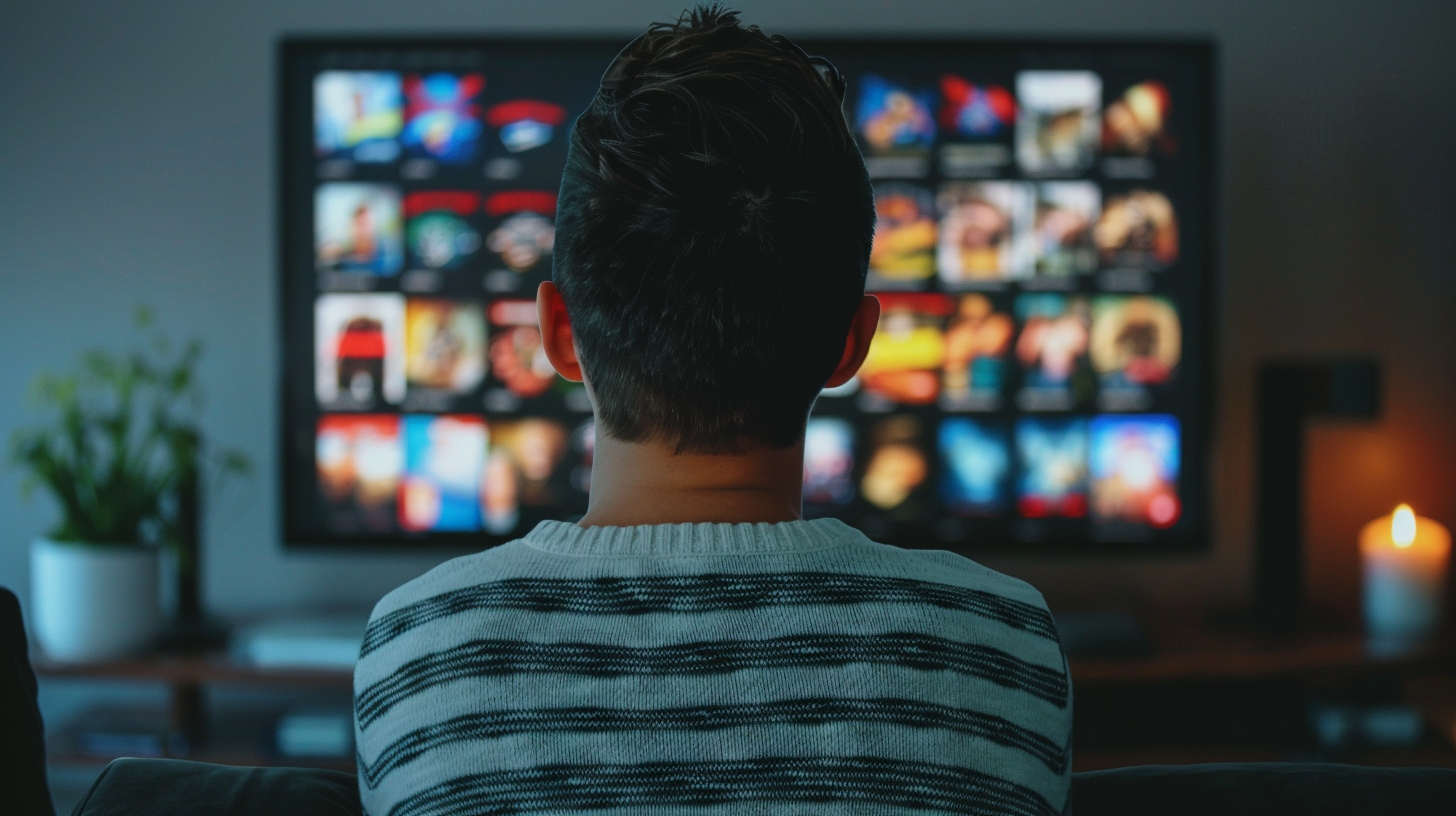Table of Contents Show
There may be products. Products are independently selected by our editors. We may earn an affiliate commission from the links with no charge to you, example: as Amazon Affiliate.
Rest and relaxation play a vital role in maintaining a healthy and balanced life, countering the pervasive hustle culture‘s push for relentless productivity. Embracing moments of rest is not a luxury but a necessity for overall well-being and mental health. By prioritizing relaxation, one can experience improved focus, heightened creativity, and better physical health. Remember, there’s much more to uncover about the impact of these essential practices.
Key Takeaways
- Rest and relaxation are crucial for productivity and mental well-being.
- Hustle culture undermines the importance of downtime and self-care.
- Balance is key to avoiding burnout and maintaining a healthy lifestyle.
- Prioritizing relaxation leads to improved focus, creativity, and overall health.
- Embracing rest is essential for a sustainable and fulfilling work-life balance.
The Origins of Hustle Culture
The rise of Hustle Culture can be traced back to the late 20th century when the glorification of overwork and busyness started gaining momentum. As society began placing a higher value on productivity and achievement, the idea of working longer hours and sacrificing personal time for professional success became increasingly prevalent. Influential figures in industries like tech and finance often touted their extreme work ethic as the key to their prosperity, inadvertently perpetuating the notion that constant hustle wasn’t only necessary but also admirable.
This shift in mindset gradually seeped into various aspects of life, from career expectations to social interactions. The glorification of being busy became a status symbol, with individuals wearing their packed schedules as badges of honor. As a result, many people started equating their self-worth with their level of productivity, leading to a culture where rest and relaxation were viewed as signs of laziness rather than essential components of a balanced lifestyle.
The Myth of Constant Productivity
I used to believe that being constantly productive was the key to success, but I’ve come to realize that breaks actually boost productivity.
Quality should always take precedence over quantity when it comes to work output.
Embracing the myth of constant productivity can lead to burnout and a decline in overall performance.
Breaks Boost Productivity
Taking regular breaks throughout the workday not only rejuvenates the mind but also enhances overall productivity. Personally, I’ve found that incorporating short breaks into my schedule allows me to return to tasks with a fresh perspective and renewed energy.
Research supports this idea, showing that taking breaks can prevent burnout and improve focus. When I step away from my work for a few minutes, whether it’s to stretch, grab a snack, or take a short walk, I often find that I can tackle challenges more effectively afterward.
This practice not only boosts my productivity but also helps maintain my overall well-being. By recognizing the value of breaks, we can work smarter, not just harder.
Quality Over Quantity
Embracing the concept of quality over quantity in our work can lead to more meaningful and impactful outcomes. Focusing on producing high-quality work rather than just churning out a high quantity of tasks can significantly boost productivity and overall satisfaction. When we prioritize quality, we pay attention to detail, creativity, and innovation, which are essential for making a lasting impression and achieving success. This mindset shift allows us to work smarter, not harder, and ensures that our efforts are directed towards tasks that truly matter. By setting high standards for our work and valuing quality over sheer quantity, we can elevate our performance and make a more significant impact in our professional endeavors.
| Benefits of Quality Over Quantity |
|---|
| 1. Enhanced creativity |
| 2. Improved efficiency |
| 3. Increased job satisfaction |
| 4. Greater overall impact |
Impact on Mental Health
Taking care of our mental health is crucial in today’s fast-paced world.
It’s important to recognize the signs of burnout and prioritize self-care to avoid its detrimental effects.
Learning stress management techniques can help us maintain a healthy work-life balance and protect our mental well-being.
Mental Health Importance
Prioritizing mental health is crucial for overall well-being and productivity in today’s fast-paced society. Taking care of our mental well-being isn’t a luxury; it’s a necessity.
In a world where hustle culture glorifies overworking and burnout, it’s vital to recognize the importance of maintaining good mental health. Neglecting our mental well-being can lead to increased stress, anxiety, and even depression.
By prioritizing mental health, we can enhance our focus, creativity, and decision-making skills. Engaging in activities that promote relaxation and mindfulness, such as meditation or spending time in nature, can significantly improve our mental health.
Avoiding Burnout Risks
Guarding against burnout risks is crucial for safeguarding our mental well-being and sustaining productivity in the long run. To prevent burnout and protect our mental health, we must prioritize self-care and set boundaries.
Here are five essential strategies to avoid burnout risks:
- Establishing work-life boundaries: Define clear boundaries between work and personal time to prevent overworking.
- Taking regular breaks: Incorporate short breaks throughout the workday to recharge and maintain focus.
- Practicing mindfulness: Engage in mindfulness activities to reduce stress and increase self-awareness.
- Seeking support: Don’t hesitate to seek help from colleagues, friends, or professionals when feeling overwhelmed.
- Maintaining a healthy lifestyle: Prioritize proper nutrition, exercise, and sufficient sleep to support overall well-being.
Stress Management Techniques
Managing stress effectively is crucial for maintaining optimal mental health. When stress overwhelms us, it can lead to anxiety, depression, and other mental health issues.
To combat stress, I prioritize self-care practices like mindfulness meditation, exercise, and spending time in nature. These activities help me unwind and reset my mind, allowing me to better cope with daily challenges.
Additionally, setting boundaries and learning to say no when feeling overwhelmed has been instrumental in managing my stress levels. Seeking support from friends, family, or a therapist isn’t a sign of weakness but a proactive step towards maintaining mental well-being.
Importance of Restorative Activities
Why is engaging in restorative activities crucial for our well-being and productivity? Restorative activities play a vital role in rejuvenating our minds and bodies, allowing us to recharge and perform at our best. Here are five key reasons why incorporating restorative activities into our routine is essential:
-
Stress Reduction: Engaging in activities like meditation or yoga can help lower stress levels and promote relaxation.
-
Improved Focus: Taking breaks and engaging in restorative activities can enhance focus and concentration, leading to increased productivity.
-
Enhanced Creativity: Restorative activities stimulate creativity by giving our minds the space to wander and explore new ideas.
-
Physical Well-being: Activities such as gentle exercise or spending time in nature can improve physical health and overall well-being.
-
Better Sleep: Relaxing activities before bedtime can promote better sleep quality, leaving us feeling refreshed and ready to tackle the day ahead.
Embracing Work-Life Balance
Achieving a harmonious work-life balance is essential for overall well-being and sustained success. It is crucial to find a middle ground where work commitments and personal life coexist without causing undue stress. Personally, I have found that when I prioritize both my professional responsibilities and personal well-being, I am more productive, focused, and happier.
To illustrate the importance of work-life balance, let’s consider the following aspects:
| Benefits of Work-Life Balance | Challenges of Work-Life Imbalance | Strategies for Achieving Balance |
|---|---|---|
| Improved mental health | Burnout and exhaustion | Setting clear boundaries |
| Enhanced productivity | Strained relationships | Time management techniques |
| Greater job satisfaction | Decreased overall well-being | Prioritizing self-care activities |
Strategies for Prioritizing Relaxation
Incorporating regular relaxation practices into my routine has been transformative in enhancing my overall well-being and productivity. By prioritizing relaxation, I’ve discovered effective strategies that have helped me maintain a healthy work-life balance and prevent burnout.
Here are five key approaches I use to prioritize relaxation:
-
Mindfulness Meditation: Taking a few minutes each day to practice mindfulness meditation helps me clear my mind and reduce stress.
-
Regular Exercise: Engaging in physical activity not only benefits my physical health but also provides a much-needed mental break.
-
Setting Boundaries: Learning to say no and setting boundaries has allowed me to avoid overcommitting and preserve time for relaxation.
-
Digital Detox: Disconnecting from technology periodically helps me unwind and be present in the moment.
-
Hobbies and Interests: Investing time in hobbies I enjoy, such as painting or reading, rejuvenates me and promotes relaxation.
Frequently Asked Questions
Can Hustle Culture Ever Be a Positive Force in Someone’s Life?
I believe hustle culture can be positive if balanced with self-care. Setting boundaries, prioritizing mental health, and embracing rest are essential. Success doesn’t have to come at the expense of well-being. It’s about finding harmony.
How Can Individuals Effectively Navigate a Work Environment That Promotes Hustle Culture?
Navigating a hustle culture workplace requires setting boundaries, prioritizing tasks, and communicating needs clearly. I manage by scheduling breaks, seeking support from colleagues, and maintaining a work-life balance. Balancing hustle with self-care is key.
Are There Any Potential Benefits to Constantly Pushing Oneself to Be Productive?
Constantly pushing oneself to be productive may yield short-term gains, but it’s crucial to balance that drive with rest and relaxation. Overworking can lead to burnout and negatively impact mental and physical health.
Can Hustle Culture Lead to Burnout Even if Individuals Prioritize Rest and Relaxation?
Even with rest and relaxation as priorities, hustle culture can still lead to burnout. I experienced this firsthand. Balancing work and self-care is crucial to prevent exhaustion and maintain well-being. It’s a delicate equilibrium.
What Role Does Societal Pressure Play in Perpetuating Hustle Culture, and How Can It Be Addressed at a Larger Scale?
Societal pressure fuels hustle culture, pushing individuals to overwork. Addressing it requires redefining success beyond productivity. Advocating for work-life balance, setting boundaries, and prioritizing mental health can shift the narrative, fostering a healthier approach to work.
Conclusion
In conclusion, it’s time to debunk the hustle culture and prioritize rest and relaxation. Despite what society may tell us, constant productivity isn’t sustainable and can have a negative impact on our mental health.
By embracing work-life balance and engaging in restorative activities, we can improve our well-being and productivity in the long run. So let’s challenge the notion that constant hustle is the only way to succeed and remember that taking care of ourselves is essential for our overall success and happiness.









